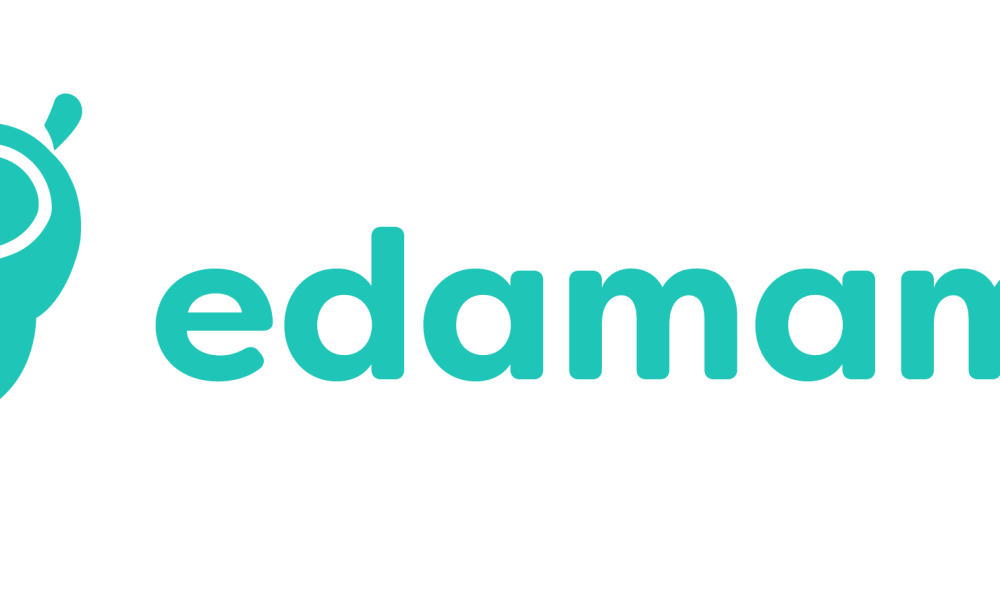Author: Win Wei
Pasarnow, an Indonesian e-groceries Platform New Cities Expansion with 3.3 million USD Funding
An Indonesia e-grocer platform, Pasarnow successfully funded 3.3 million USD and has stated that this amount will be spent on expanding their regional coverage and increase their grocery supply-chain capabilities and last-mile solutions. The funding led by East Ventures also saw participation from angel investors including Skustar Capital, Amand Ventures, and SMDV.
Pasarnow will be splitting the funds into different parts of their operation expansion – stretch out to new cities, expand the team, upgrade system and infrastructures, and grow warehouses. An additional characteristic to the existing ten warehouses across Greater Jakarta would be their instant delivery that promises a fresh and speedy solution to customers.
CTO and co-founder of Pasarnow, Donald Woo said, “Currently, Pasarnow operates in Greater Jakarta and Bandung, with over 100 full-time employees and 200 daily workers and driver-partners,” He further added that this funding will pave the way to cater to a larger pool of customers as well as greater tech capability.
Pasarnow was founded in 2019 by Woo, Cindy Ozzie, and James Rijanto, setting their sight to streamline Indonesia’s complicated fresh product supply chain and deliver promising quality products to customers with its own platform.
“Ensuring product freshness when it reaches the customers is supremely challenging,” said Rijanto.
He added, “Food products like fruits, vegetables, and frozen meat are susceptible and perishable, requiring fast and temperature-controlled delivery, which causes expensive logistics costs. That is why Pasarnow has been investing heavily in our technology and operational infrastructures to solve these issues. Furthermore, having a multi-channel platform helps us in achieving faster economies of scale and in creating greater efficiency in our operations”
Pasarnow has different channels tailored to meet customers’ specific needs through a divergent set of prices, key features, and promotions. The operational back-end collects all orders from customers and develops a prediction system that helps all farmers and supplies to better schedule their delivery and harvests. In turn, it allows Pasarnow to deliver the freshest quality products at an affordable price to customers.
Philippine Fintech Startup NextPay Raised USD 1.6 million In Funding
A Philippine-based fintech startup, NextPay, has raised 1.6million US dollars in a recent seed funding co-led by Golden Gate Ventures and Gentree Fund, a venture vehicle of the Sy family, the family behind SM Group in the Philippines.
Some of the other investors that joined the round include Broadhaven Ventures, Saison Capital, Razorpay, Tribe Capital, and Chinmay Chauhan of BukuWarung.
Lisa Gokongwei, a private investor from JG Summit and Goodwater Capital, a customer tech investor who had previously invested in Twitter, Facebook, and Spotify, invested in this round of funding alongside local venture capitals such as Kickstart Ventures (Ayala Group), and Foxmont Capital.
According to NextPay, part of the 1.6millions USD will be invested in expanding their range of services, growing customer base, and developing and optimizing new digital banking solutions to micro, small, and medium enterprises (MSMEs).
CEO and co-founder of the digital financial solution platform, Don Pansacola, shared that they have a firm belief in the ever-evolving and continuous digital changes in business banking as the Philippines accelerates its digital transformation initiatives.
He added, “This investment supports our goal of putting the power of big banks in the hands of small businesses,”
The success of the seed funding helped speed up their plan to introduce meaningful digital banking solutions, such as corporate cards, loans, and platform integrations for MSMEs.
The fintech startup was launched in 2020 during the Coronavirus pandemic as a digital platform that allows customers to democratize access to affordable financial services in the Philippines.
User does not have to pay for any set-up fees or excessive requirements to make payment via this pay-per-use platform. Companies can run many functions here, such as managing cash flow, collecting payments from customers via invoices, and paying their employees, bills, or suppliers to any bank or through an e-wallet.
NextPay has processed more than 9.1 million US dollars since launch, and Golden Gate Ventures Partner Justin Hall complimented, “NextPay is building industry-leading digital banking solutions for SMEs to manage better their finances: from payroll to collections, to invoicing.”
Edamama Raised 5million USD Funding For Expansion and Improvement

Edamama, an e-commerce startup platform based in the Philippines, is said to raise US$5 million in its pre-series A round.
Many esteemed Filipino and global angel investors joined the round of ventures for the e-commerce platform with some of the familiar names like Gentree Fund, Foxmont Capital Partners, Robinsons Retail Holdings, Inc (RRHI), Globe Telecom, JG Summit, and Kickstart Ventures, which are affiliates of SM Investments Corporation.
Edamama is a motherhood-focused platform. Currently, it is selling baby care products and essentials that primarily revolve around promoting the healthy growth of a baby. Visitors can find baby lotion, baby wash, diapers, romper, stroller, baby blanket, and more products on the site. Partnered with Procter & Gamble’s Pampers, the platform also has a “Subscribe & Save” category that helps deliver pampers to the doorstep whenever necessary.
More than just a marketplace, Edamama is also a hub for parents and kids to take part in activities and classes to learn skills and knowledge for personal growth and family bonding. Parents can learn more about what they can do to promote the growth of their child, ways to improve quality family time, and child-focused health concerns under their “Discover” tab.
The company is hoping to use the new funds for warehouse expansion in increasing its capacity and capabilities and further improve its delivery services. Part of the funding will be used to explore new direct-to-consumer mediums like social commerce, and upgrade their omnichannel to provide customers with a seamless shopping experience.
The mission of Edamama has caught the attention of Minette Navarrete, President of Kickstart Ventures, “Edamama captures the essence of this ‘village’: an easy, trustworthy, and personalized shopping experience for busy moms, useful, curated, verified content and safe community interactions that affirm and support parenting,”
Bela Gupta D’Souza, the founder of Edamama noticed mothers have been actively purchasing child care products online especially during the Covid-19 pandemic.
Since its launch in May 2020, the company has become the trusted e-destination for many parents in Philippines, and has served more than tens of thousands of expectant and new mothers.
A majority growth of Philippines e-commerce market is the maternity products category due to the high fertility rate, and the segment’s value is predicted to surpass US$1 bil in 2022.
Malaysia AirAsia To Buy Indonesia Gojek Through A Stock Swap Deal
Tony Fernandes, CEO of Malaysia’s favorite budget airline carrier AirAsia Group, shared in a virtual press conference that AirAsia will be acquiring Gojek’s Thailand business.
The process will take place through a stock exchange deal, where Gojek’s business will be bought over by AirAsia for $50 million worth of share in AirAsia SuperApp Sdn. Bhd., resulting in Gojek owning a 4.76% stake in AirAsia’s lifestyle platform.
As part of the $50 million, $10 million will be spent on acquiring 100% equity interest in Velox Fintech Co Ltd, while the rest of $40 million will be spent on acquiring 100% equity interest in Velox Fintech (Thailand) Co Ltd.
This took place not long after AirAsia applied for a Malaysia digital banking license, basically conveyed the message there is a shift in business focus towards digitalization.
Tony said that this acquisition marks a big virtual step for AirAsia into the Thai market, as Gojek already has thousands of ride-hailing riders and merchants base in the country. He added that AirAsia will take this opportunity to expand Gojek to other parts of Thailand because AirAsia has opened up many destinations and routes in Thailand.
Gojek CEO Kevin Aluwi said this gives them the opportunity to pay more attention to Vietnam and Singapore markets, to which they seek to commit significant resources to.
Aluwi also said “While we remain committed to our overseas markets, we decided that our priority was to really invest in Singapore and Vietnam, due to the scale of business that we have in those markets. When we realised that we could not properly commit the right resources to make Thailand as ambitious as Singapore as Vietnam, we began the {exit} conversations.”
Gojek is expecting to launch its car and e-payment services this year in Vietnam, and their driver recruitment has begun its process. It is said they will first deploy the service in Ho Chi Minh City and slowly expand to Hanoi.
Carro, a Singapore Start-Up Company Funded Over $300 Million From SoftBank and Others
You should know what contactless delivery is by now, but you have probably never heard of a contactless car showroom. A Singapore-based startup company, Carro has raised $360 million in a Series C funding led by SoftBank Vision Fund 2, a venture capital fund of Japan’s SoftBank Group.
The latest round of funding was joined by EV Growth and Alpha JWC Ventures, which marks the first time both companies have cross paths, backing up the same startup.
The startup did not specify the exact value, but they have shared the joy of surpassing the $1 billion mark in annual gross merchandise volume – becoming another unicorn.
The funding serves the purpose of expanding their market across nations brimming with potentials – Thailand, Malaysia, Indonesia, and Singapore. Part of the fund is allocated to their financial services and upgrading their AI technology, particularly the part that facilitates transactions.
The founder and CEO of Carro, Aaron Tan, shared with CNBC’s Squawk Box their intention to go public over the next 2 years. Although it has not been confirmed when, however, according to Aaron, the New York stock exchange and Nasqad seem to house great potential for the company’s public listing.
Similar to well-known platforms that run activities of selling and buying clothes, Carro is an online market that allows users to sell, lease, and buy new or used cars in the comfort of their own homes. Since 2015, Carro has been in the industry for at least half a decade serving its customers. It’s a one-stop marketplace where users can find financing options, insurance, and maintenance services, too.
Companies that fall under the same group as Carro include Genie, a financial services unit; myTukar, a car bidding platform in Malaysia; and Jualo, a C2C (consumer-to-consumer) market.





